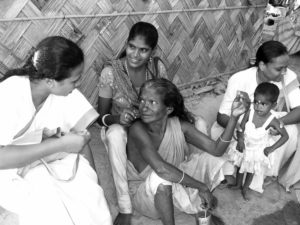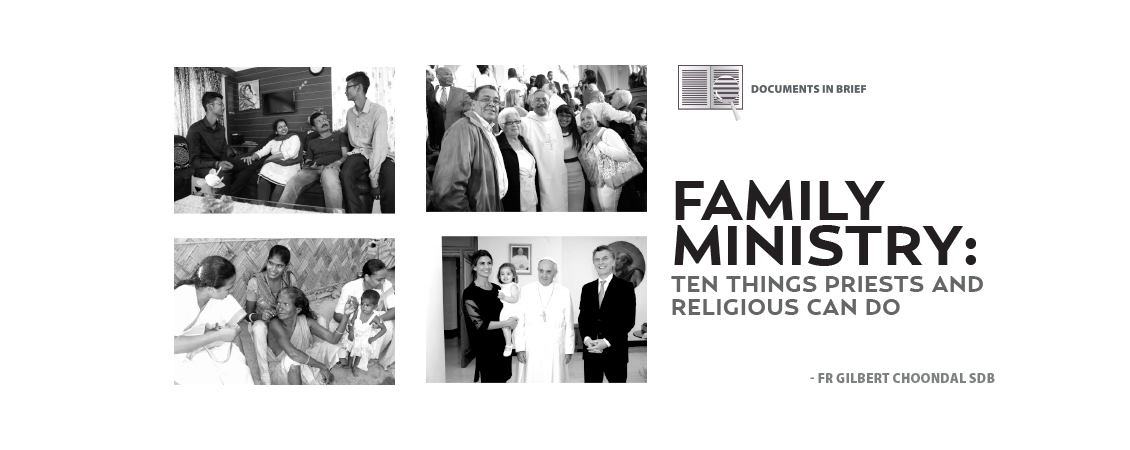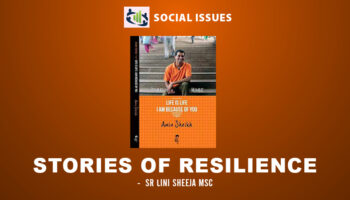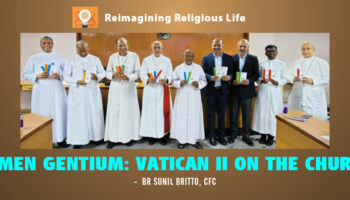Amoris Laetitia (The Joy of Love), the post-synodal apostolic exhortation by Pope Francis, was presented in MAGNET in September 2016. This article looks at the ways in which it invites priests and religious to be meaningfully involved in family ministries. (The numbers in parenthesis refer to the Document.)
1. Visit Families: Family visits are formative and educative. Pastors, together with women religious, should organize family visits, and animate families in a friendly way.
“When visiting our people’s homes, we should gather all the members of the family and briefly pray for one another, placing the family in the Lord’s hands.” (227)
2. Accompany Couples after their Marriage: Priests, religious and lay animators should accompany couples, especially to face the challenges of the first years of marriage.
“It is all the more essential that couples be helped during the first years of their married life to enrich and deepen their conscious and free decision to have, hold and love one another for life.” (217)
3. Create a Family Cell at the parish: Help families facing problems. Know experts who can help, and put families in touch with them.
“Parishes, movements, schools and other Church institutions can help in a variety of ways to support families and help them grow…The parish office should be prepared to deal helpfully and sensitively with family needs and be able to make referrals, when necessary, to those who can help.” (229)

4. Catechise the Family: “We pastors have to encourage families to grow in faith. This means encouraging frequent confession, spiritual direction and occasional retreats. It also means encouraging family prayer during the week, since ‘the family that prays together stays together.’” (227)
5. Animate the Sunday Liturgy: Prepare the Sunday Liturgy in such a way as to help parents.
“Many are touched by the power of grace experienced in sacramental Reconciliation and in the Eucharist, grace that helps them face the challenges of marriage and the family.” (38)
6. Form Pastors and Religious towards Family Ministry: The formation curriculum needs to be redesigned to include family ministries, and include pastoral experience with families.
“Along with a pastoral outreach aimed specifically at families, this shows the need for a more adequate formation… of priests, deacons, men and women religious, catechists and other pastoral workers.” (202)

7. Renew the SCC/BCC in the parish: “The main contribution to the pastoral care of families is offered by the parish, which is the family of families, where small communities, ecclesial movements and associations live in harmony.” (202)

8. Promote Adult Catechesis: A proper catechesis of the parents helps them deal with the moral and spiritual formation of their children.
“The Church is called to cooperate with parents through suitable pastoral initiatives, assisting them in the fulfilment of their educational mission.” (85)
9. Promote the Language of Mercy: Pastors should be agents of God’s merciful love, not harsh judges.
“The Church’s way, from the time of the Council of Jerusalem, has always been the way of Jesus, the way of mercy and reinstatement… The way of the Church is not to condemn anyone for ever; it is to pour out the balm of God’s mercy on all those who ask for it with a sincere heart.” (296)
At times “we act as arbiters of grace rather than its facilitators. But the Church is not a tollhouse; it is the house of the Father, where there is a place for everyone, with all their problems.” (310)

10. Invite a Family: As we visit their homes, invite a family once a month to share your prayer life or community life. Invite a poor family to have a meal with your community.
“Let us not forget that the Church’s task is often like that of a field hospital.” (291). “The family has always been the nearest hospital.” (321)

To subscribe to the magazine Contact Us





